Submitted:
28 April 2023
Posted:
29 April 2023
You are already at the latest version
Abstract
Keywords:
1. Introduction
2. Setting the Scene: The Evolution of Fisheries Co-Management Endeavors
2.1. The Place of Greek Fishery and Aquaculture Sectors in EU-27
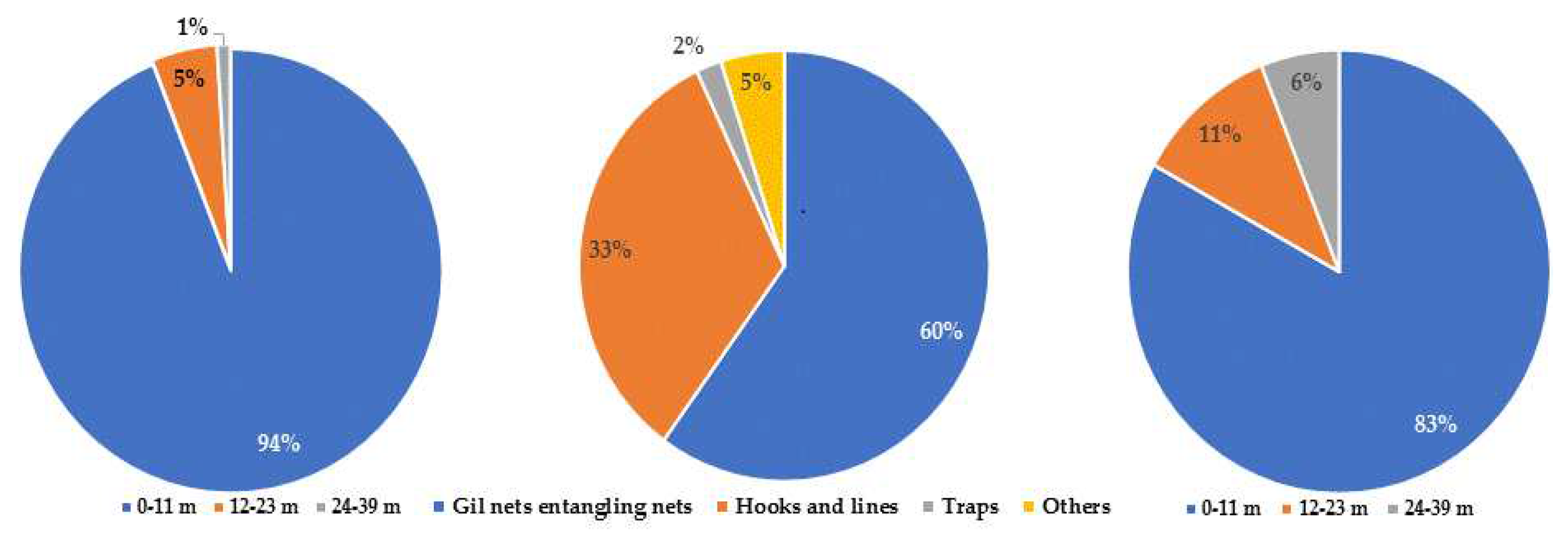
2.2. Fisheries Co-Management and Governance as Subjects of Change and Evolution
2.2.1. Fisheries Governance Considered under the Lens of Evolutionary and Interactive Governance
2.2.2. A Bit of FLAGs History in Greece
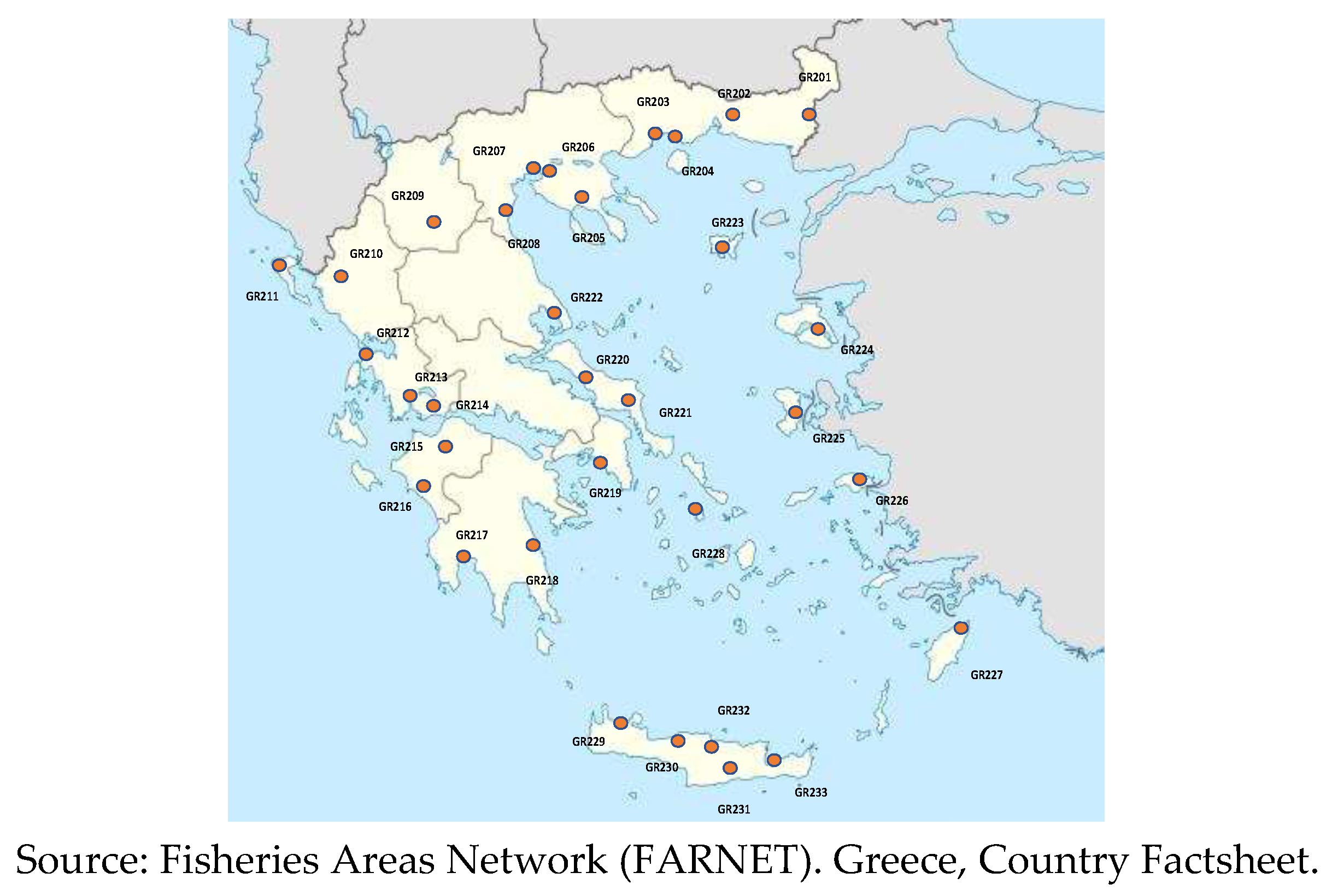
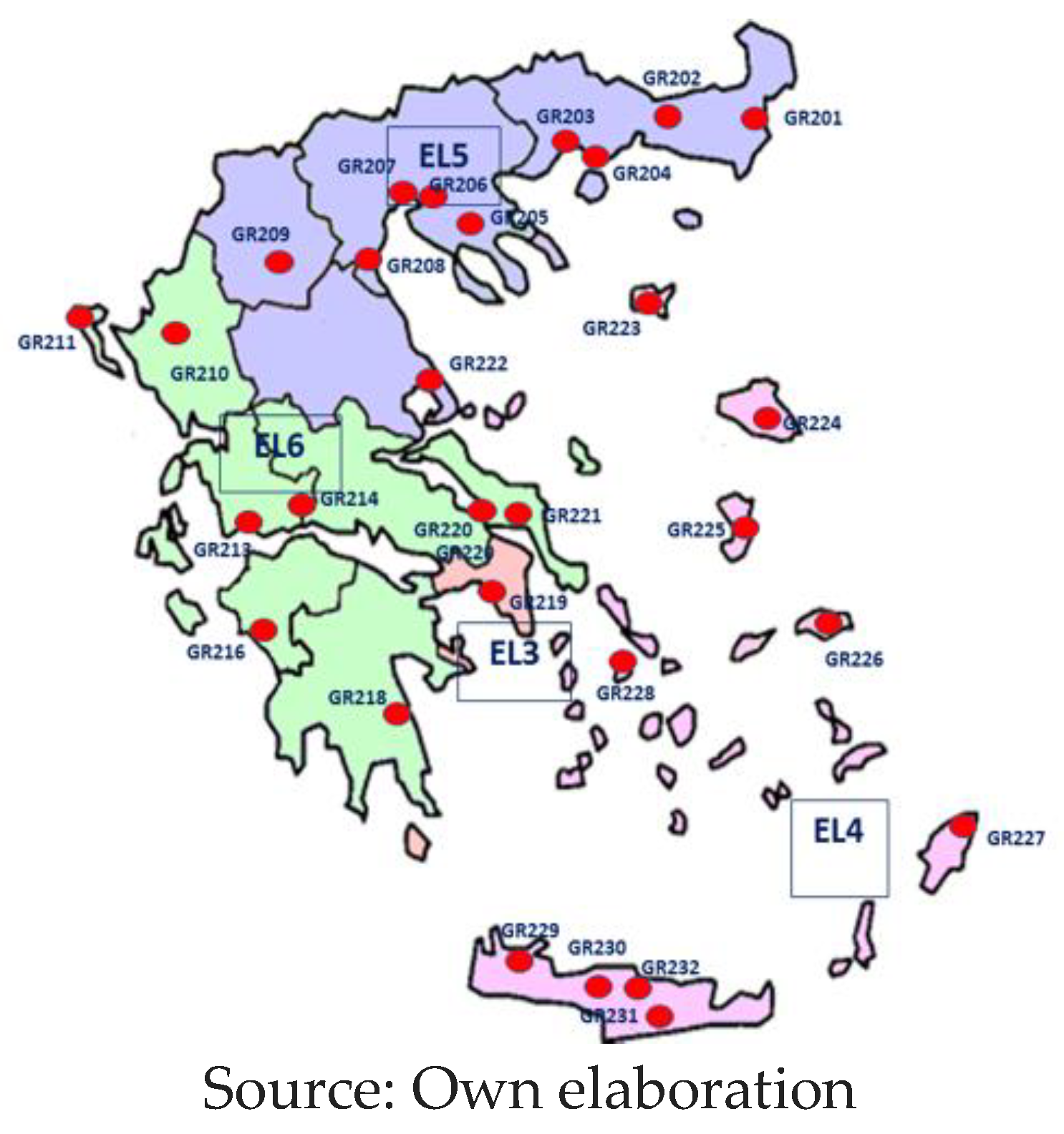
2.3. MSP as a Key Process for Fisheries Co-Management, Also Considering Climate Change Effects
3. Materials and Methods
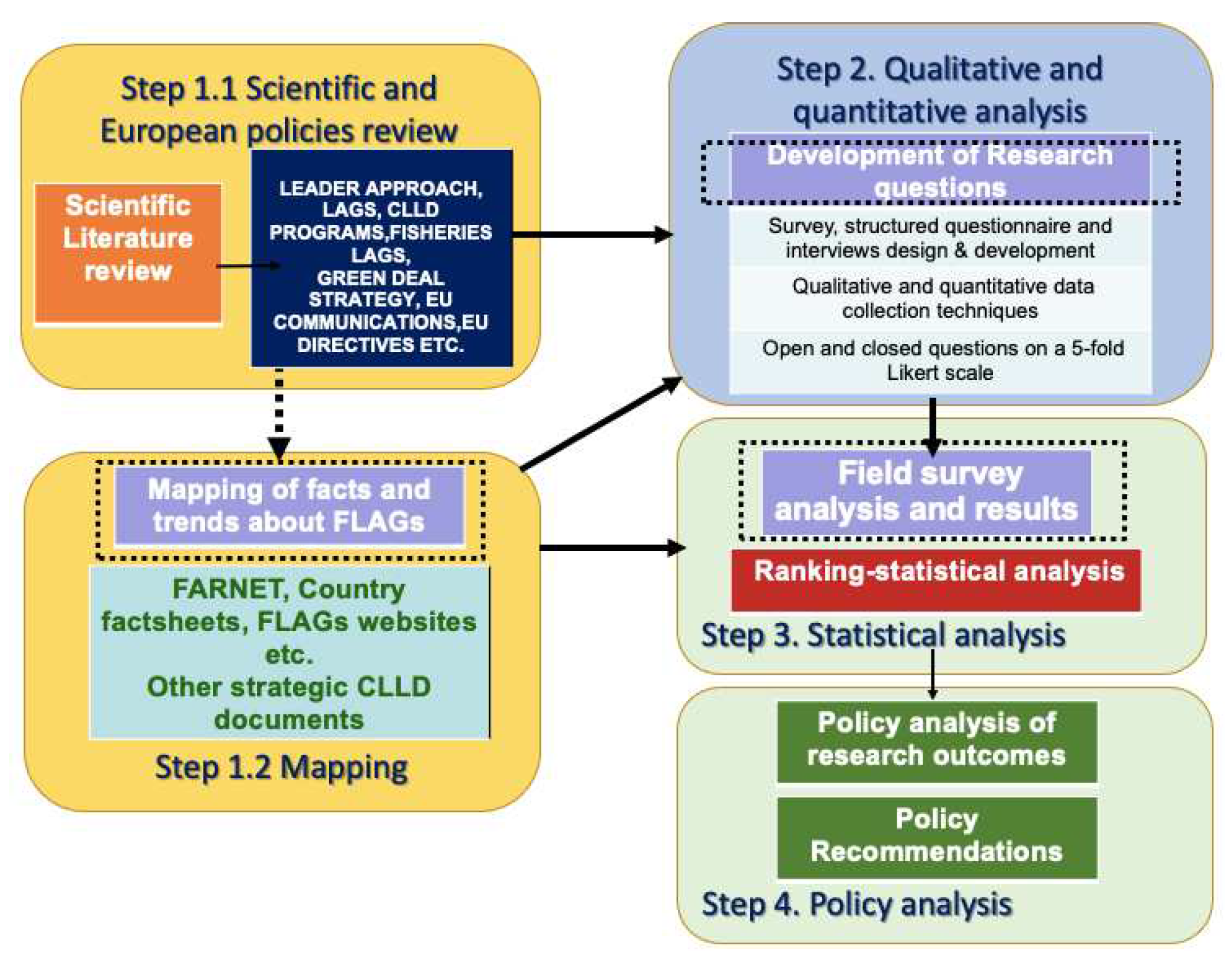
- energy efficiency in the aquaculture industry and the range of energy sources in the sector;
- emissions and energy efficiency of fishing vessels;
- use of renewable energy sources (hereinafter RES);
- impacts from the “invasion” of alien species; v. awareness, education, and training of individual and collective actors about using RES and reducing marine pollution;
- waste management of aquaculture and fish processing plants;
- ways of tackling overfishing; and
- the fishery-driven and other marine litter (fishing nets, plastics, etc.)
- climate neutrality, zero pollution; circular economy and waste prevention;
- biodiversity and investment in nature-based solutions;
- coastal resilience;
- responsible food systems;
- ocean literacy;
- research and innovation vii. blue skills and jobs;
- citizen participation; ix. maritime spatial planning;
- regional co-operation on a sea-basin level, and coastal support;
- safety at sea; and
- international promotion of sustainable blue economy.
| NUTS1_Greece | Number of participating FLAGs | Fisheries employment | |
| EL3 | Attica | 1 | 380 |
| EL4 | Aegean Islands and Crete | 10 | 4.117 |
| EL5 | Northern Greece | 9 | 2.435 |
| EL6 | Central Greece | 9 | 3.565 |
| Total | 29 | 10.497 | |
4. Results
4.1. Thematic Focuses of CLLD Strategies 2014-2020
- ▪
- in insular areas and in areas including both island and coastal fishery areas, a significant impact to the reduction of gas emissions as well as to the increase of the energy efficiency of the fishing vessels is expected (Table 3).
- ▪
- in the coastal and inland fishing dependent areas as well as in the mixed island and coastal space, impact on increasing the use of RES is expected to be particularly important (Table 3).
- ▪
- the impact of CLLD Programs to the awareness, education and training in favor of the use of RES is particularly important in the inland fishing dependent areas and in the coastal and insular space as well (Table 3).
- ▪
- as already noticed, the “invasion” of alien species in the Greek seas, is addressed to a greater extent, in the exclusively island fishing dependent areas (Table 3).
- ▪
- the impact of the CLLD programs to the awareness, education and training of both citizens and local agencies/enterprises to reduce marine litter seems to be vital in all four types of intervention areas (inland-only, island-only, coastal only and areas combining island and coastal areas), see also Table 3.
- ▪
- the influence of CLLD programs is vital to the rational waste management of aquaculture and fish processing plants in coastal areas and mixed coastal and insular space (Table 3).
- ▪
- Tackling overfishing and enriching fish stocks seems to be more important in inland and in coastal fishery dependent areas (Table 3).
- ▪
- Finally, reducing fishery-driven and other marine litter is expected to benefit all types of the fishing dependent areas (insular, coastal, inland, insular & coastal) (Table 3).
“FLAGs are a cornerstone for achieving development goals in the marine environment and relevant jobs”;
“Coastal fishing is still considered to be very crucial for the local fishing communities”;
“The current legislative framework hinders the implementation of many important CLLD related measures, often rendering the strategic directions of the fisheries LAGs’ dormant and failing to address the needs of their respective areas”.
“Fishers know little about conservation of marine ecosystems, overfishing, circular economy and fishing tourism”
“Fisheries need to de sufficiently informed about and adapted to the ecosystem-based management and take initiatives to reduce overfishing and make fishing effort productive, in the long term”.
“FLAGs should step up their efforts in reaching out fishers, raising their awareness through relevant educational programs and seminars” and also
“In order for training to have the greatest participation and the best result it should not be a classical training program. It should be done at the right time and place. For example, it should take place after the sale of the day’s catch, next to the boats or in the coffee shops where fishers meet and have the opportunity to discuss and address questions”.
“The role and responsibilities of fishery LAGs should be expanded to enable the implementation of a holistic development strategy on local level, improving the position and the role of coastal fishers, both within the LAGs and the fishing local communities”, and
“The exclusion of local fishers is due to the fact that they are often elderly, low-educated people, working rather alone and not easily trusting new comers”
5. Discussion
6. Conclusions and Policy Recommendations
Author Contributions
Funding
Informed Consent Statement
Data Availability Statement
Acknowledgments
Conflicts of Interest
References
- Barange, M.; Bahri, T.; Beveridge, M.C.M.; Cochrane, K.L.; Funge-Smith, S.; & Poulain, F. (Eds.) Impacts of climate change on fisheries and aquaculture: synthesis of current knowledge, adaptation and mitigation options. FAO Fisheries and Aquaculture Technical Paper No. 627, Rome, FAO. 2018; pp.628.
- Maulu, S.; Hasimuna, O.J.; Haambiya, L.H.; Monde, C.; Musuka, C.G.; Makorwa, T.H.; Munganga, B.P.; Phiri, K.J.; and Nsekanabo, J.D. Climate Change Effects on Aquaculture Production: Sustainability Implications, Mitigation, and Adaptations. Front. Sustain. Food Syst. 2021, 5, 609097. [Google Scholar] [CrossRef]
- Daw, T.; Adger, W.N.; Brown, K.; Badjeck, M.-C. Climate change and capture fisheries: potential impacts, adaptation and mitigation. In K. Cochrane, C. De Young, D. Soto and T. Bahri (eds). Climate change implications for fisheries and aquaculture: overview of current scientific knowledge. FAO Fisheries and Aquaculture Technical Paper. No. 530. Rome, FAO, 2009; pp.107-150.
- O.E.C.D. The Economics of adapting fisheries to climate change, OECD Publishing, Paris, 2010; Available online. [CrossRef]
- Peck, M.A.; Catalán, I.A.; Damalas, D.; Elliott, M.; Ferreira, J.G.; Hamon, K.G.; Kamermans, P.; Kay, S.; Kreiß, C.M.; Pinnegar, J.K.; Sailley, S.F.; Taylor, N.G.H. ; Climate Change and European Fisheries and Aquaculture: ‘CERES’ Project Synthesis Report. Hamburg. 2020. [CrossRef]
- F.A.O. Assessing climate change vulnerability in fisheries and aquaculture: Available methodologies and their relevance for the sector, by Cecile Brugère and Cassandra De Young, FAO Fisheries and Aquaculture Technical Paper No. 597, Rome, Italy, 2015.
- European Commission. Community-led local development and the blue economy, Publications Office of the European Union, Directorate-General for Maritime Affairs and Fisheries, 2023. Available online: https://data.europa.eu/doi/10.2771/392 (accessed on 15 April 2023).
- F.A.O. The State of Mediterranean and Black Sea Fisheries; General Fisheries Commission for the Mediterranean: Rome, Italy, 2016; Available online: http://www.fao.org/3/a-i5496e.pdf; (accessed on 15 January 2022).
- European Commission. Report from the Commission to the European Parliament and the Council, outlining the progress made in implementing Directive 2014/89/EU establishing a framework for maritime spatial planning, Brussels, 3.5.2022 COM (2022), final, 2022; 185.
- European MSP Platform, Available online: www.msp-platform.eu (assessed on 14.03.2023).
- Pertoldi, M.; Fioretti, C.; Guzzo, F.; Testori, G.; De Bruijn, M.; Ferry, M.; Kah, S.; Servillo, L.A.; and Windisch, S. ; Handbook of Territorial and Local Development Strategies, Pertoldi, M., Fioretti, C., Guzzo, F. and Testori, G. (eds), Publications Office of the European Union, Luxembourg, 2022. [CrossRef]
- O.E.C.D. Fisheries and Aquaculture in Greece, January, 2021; Available online::https://www.oecd.org/agriculture/topics/fisheries-and aquaculture/documents/report_cn_fish_grc.pdf, (assessed on 14.03.2023).
- European Union. Facts and Figures on the Common Fisheries Policy, Basic statistical data-2022, 2022; Luxemburg, February.
- European Commission. Fleet in a Glimpse, Situation as in July 2011, Available online: https://webgate.ec.europa.eu/fleet-europa/stat_glimpse_en (accessed οn 22.09.2022).
- Scientific, Technical and Economic Committee for Fisheries (STECF). The 2021 Annual Economic Report on the EU Fishing Fleet (STECF 21-08), EUR 28359 EN, Publications Office of the European Union, Luxembourg, 2021; ISBN 978-92-76-40959-5. [CrossRef]
- Liontakis, A.; Vassilopoulou, V. Exploring fishing tourism sustainability in North-Eastern Mediterranean waters, through a stochastic modelling analysis: An opportunity for the few or a viable option for coastal communities ? Ocean & Coastal Management, 2022, 221, 106118, ISSN 0964-5691, Available online. [CrossRef]
- Vassilopoulou V.; Kikeri M.; Politikos D.; Kavadas S. Action Plan on the testing area of Greece, PORTODIMARE Project, INTERREG ADRION, 2021, Available online: https://portodimare.adrioninterreg.eu/wp-content/uploads/2020/12/DT2.8.3_Action-Plan-on-the-testing-area-of-Greece_new.pdf, (assessed on 14.03.2023).
- Kyvelou, S.S.I.; Ierapetritis, D.G. Fisheries Sustainability through Soft Multi-Use Maritime Spatial Planning and Local Development Co-Management: Potentials and Challenges in Greece. Sustainability, 2020, 12, 2026. Available online. [CrossRef]
- Hellenic Statistical Authority. Marine fishing survey with motorized vessels, Year 2020, Athens, 2021.
- Kyvelou, S.S.I.; Ierapetritis, D.G. Fostering Spatial Efficiency in the Marine Space, in a Socially Sustainable Way: Lessons Learnt From a Soft Multi-Use Assessment in the Mediterranean. Front. Mar. Sci. 2021; 8, 613721. [Google Scholar] [CrossRef]
- Macfadyen, G., P.; Cappell, R. Characteristics of Small-Scale Coastal Fisheries in Europe, EPRS: European Parliamentary Research Service, 2011; Available online: https://policycommons.net/artifacts/1338828/characteristics-of-small-scale-coastal-fisheries-in-europe/1947856/ on 19 Nov 2022. CID: 20.500.12592/gr3ght. (accessed on 19.11.2022).
- Harris, M. Greenpeace Launches “A Box of Sea” to Promote Low-Impact Fishing. 2016. Available online: http://greece.greekreporter.com/2016/06/25/greenpeace-launches-a-box-of-sea-to-promote-low-impact-fishing/ (accessed on 15 October 2022).
- Tzanatos, E.; Dimitriou, E.; Katselis, G.; Georgiadis, M.; and Koutsikopoulos, C. Composition, temporal dynamics and regional characteristics of small-scale fisheries in Greece, Fish. Res. 2005, 73, pp. 147–158. [Google Scholar] [CrossRef]
- Lazou-Dean, A. Low Impact Fishers: The Future of Our Seas. 2014; Available online at: http://www.medsos.gr/medsos/images/stories/PDF/LAZOU.pdf(accessed on January 19, 2021).
- E.U.M.O.F.A. European market observatory for Fisheries and Aquaculture Products, Country Profile, Greece, 2022; 21.03.2022.
- European Parliament, Directorate-General for Internal Policies of the Union, Chever, T., Sannino, V., Ballesteros, M., et al., Impacts of the COVID-19 pandemic on EU fisheries and aquaculture, European Parliament, 2021, https://data.europa.eu/doi/10.2861/292305.
- Beunen, R.; Van Assche, K.; Gruezmacher, M. Evolutionary Perspectives on Environmental Governance: Strategy and the C Construction of Governance, Community, and Environment. Sustainability, 2022, 14, 9912 https:// doiorg/103390/su14169912. [Google Scholar] [CrossRef]
- Partelow, S.A.; Schlüter, D.; Armitage, M.; Bavinck, K.; Carlisle, R.; Gruby, A.K.; Hornidge, M.; Le Tissier, J. ; Pittman; A. M.; Song, L. P.; Sousa, N.; Văidianu, and K. Van Assche. 2020;. Environmental governance theories: a review and application to coastal systems. Ecology and Society, 25(4): 19. Available online. [CrossRef]
- Pierson, P. Politics in Time: History, Institutions, and Social Analysis; Princeton University Press: Princeton, NJ, USA, 2004. [Google Scholar]
- Van Assche, K.; Beunen, R.; Duineveld, M. , Evolutionary Governance Theory: An Introduction; Springer: Heidelberg, Germany, 2014. [Google Scholar]
- Van Assche, K.; Hornidge, A.K.; Schlüter, A.; Vaidianu, N. Governance and the coastal condition: Towards new modes of observation, adaptation and integration. 2020, 112, Mar. Policy. [CrossRef]
- Van Assche, K.; Beunen, R.; Duineveld, M. Evolutional Governance Theory: An Introduction; Springer: Heidelberg, Germany, 2014; Available online: http://www.springer.com/gp/book/9783319009834 (accessed on 15 October 2022).
- Kooiman, J.; Bavinck, M.; Jentoft, S.; Pullin, R. (eds), Fish for life interactive governance for fisheries, MARE publication series no. 3. Amsterdam University, Amsterdam, accessible on: https://library.oapen.org/viewer/web/viewer.html?file=/bitstream/handle/20.500.12657/35130/340216.pdf?sequence=1&isAllowed=y, 20005; (accessed on 19 November 2022).
- Jentoft, S. Limits of governability: institutional implications for fisheries and coastal governance. Mar Policy, 2004; 31 (4), 360–370. [Google Scholar] [CrossRef]
- Linke, S.; Bruckmeier, K. Co-management in fisheries—Experiences and changing approaches in Europe. Ocean Coast. Manag. 2015, 104, 170–181. [Google Scholar] [CrossRef]
- Chuenpagdee, R. Blue justice for small-scale fisheries: What, why and how. In: Kerezi, V., Kinga Pietruszka, D., & Chuenpagdee, R. (Eds.) Blue Justice For Small-Scale Fisheries: A Global Scan. TBTI Global Publication Series, St. John’s, NL, 2020; Canada.
- Bugeja-Said A.; Svels,K.; Thuesen, A., A.; Linke, S.; Salmi, P.; Lorenzo, I.,G.; de los Ángeles Piñeiro Antelo, A.; Villasante,S.; Orduña, P. P.; Pascual-Fernández, Pita, C.; Castelo, D.; Kyvelou, S. S.; Ierapetritis, D.,I. Flagging Justice Matters in EU Fisheries Local Action Groups (FLAGs). In: Jentoft S., Chuenpagdee R., Bugeja Said A., Isaacs M. (eds) Blue Justice. MARE Publication Series, 2021; vol 26. Springer, Cham. [CrossRef]
- Salmi, P. , Linke, S., Siegrist, N. et al. A new hope for small-scale fisheries through local action groups? Comparing Finnish and Swedish experiences. Maritime Studies, 2022; 21, 309–32. [Google Scholar] [CrossRef]
- Root, H.; Jones, H.; Wild, L. Managing Complexity and Uncertainty in Development Policy and Practice. (PDF) Managing Complexity and Uncertainty in Development Policy and Practice. 2015; odi.org, Available online: https://www.researchgate.net/publication/280884255_Managing_Complexity_and_Uncertainty_in_Development_Policy_and_Practice [accessed on 21 November 2022].
- Wenger, Etienne Charles; Will Snyder. “Communities of Practice: The Organizational Frontier.” Harvard Business Review 78, 2000; p.p 139-145. Accessible on : https://www.semanticscholar.org/paper/Communities-of-Practice%3A-The-Organizational-Wenger-Snyder/3a3f02dac5fc83e8a75eeff80b2f12697b6dfe3d. 1269.
- Ierapetritis, D.G.; Lagos, D. Building rural entrepreneurship in Greece: Lessons from lifelong learning programmes. Entrep. Soc. Cap. Gov. Dir. Sustain. Dev. Compet. Reg. 2012; 281–301. [Google Scholar]
- PESCA. New Community Initiative for Fisheries and Fishery-Dependent Zones. Available online: https://ec.europa.eu/commission/presscorner/detail/en/IP_94_128 (accessed on 30 November 2022).
- The European Fisheries Areas network, FARNET, June 2017. Available online: http://flashnote.farnet.eu/201706/ (accessed on 6 February 2023).
- McKinley, E.; Acott, T.; and Stojanovic, T. Socio-cultural Dimensions of Marine Spatial Planning, in J. Zaucha, K. Gee (eds.), Maritime Spatial Planning, Past, Present, Future, 2019; Palgrave Macmillan, Springer Nature, doi.org/10.1007/978-3-319-98696-8_7.
- Artelaris, P.; Mavrommatis, G. Territorial cohesion, the COVID-19 crisis and the urban paradox: Future challenges in urbanization and economic agglomeration Region, Volume 9, Number 1, 2022, pp. 135–146. ISSN 2409-5370. [CrossRef]
- Kyvelou, S. (Ed.) From Spatial Planning to Territorial Management: The Notions of Strategic Spatial Planning and Territorial Cohesion in Europe; KRITIKI: Athens, Greece, 2010; p. 344. (In Greek) [Google Scholar]
- Camagni, R. Progress on an ex-ante assessment tool for territorial impact of EU policies: The TEQUILA model and beyond. In Proceedings of the ESPON Seminar, Evora, Portugal, 12–13 November 2007. [Google Scholar]
- Ierapetritis, D. Social Capital, Regional Development, and Innovation in Greece: An Interregional Analysis. Int. J. Innov. Reg. Dev. 2019, September, 26, pp. 22-58.
- Fratsea, L.-M.; Papadopoulos, A.G. Fisheries Co-Management in the “Age of the Commons”: Social Capital, Conflict, and Social Challenges in the Aegean Sea. Sustainability 2022, 14, 14578. [Google Scholar] [CrossRef]
- Ceccacci, A.; Mulazzani, L.; Malorgio, G. Local partnerships for the development of coastal regions: a review of Fisheries Local Action Groups with focus on the Mediterranean. New Medit, 2022, 21 (03). (2022, September 16). [CrossRef]
- Papadopoulos, A. G.; Fratsea, L.-M.; Karanikolas, P.; Zografakis, S. Reassembling the rural: socio-economic dynamics, inequalities and resilience in crisis-stricken rural Greece, Sociol. Rural. 2019, 59(3), 474–493. [Google Scholar] [CrossRef]
- European Commission. Communication from the Commission to the European Parliament, the Council, the European Economic and Social Committee and the Committee of the Regions on a New Approach for a Sustainable Blue Economy in the EU, Transforming the EU’s Blue Economy for a Sustainable Future, 2021; 17 May 2021.
- Kyvelou, S.S.I.; Ierapetritis, D.G. How to make blue growth operational? A local and regional stakeholders perspective in Greece. WMU J Marit Affairs 2019, 18, pp. 249–280. [Google Scholar] [CrossRef]
- Holly, J. Niner, Noel C. Barut, Tom Baum, Daniela Diz, Daniela Laínez del Pozo, Stuart Laing, Alana Malinde S.N. Lancaster, Kirsty A. McQuaid, Tania Mendo, Elisa Morgera, Payal N. Maharaj, Ifesinachi Okafor-Yarwood, Kelly Ortega-Cisneros, Tapiwa V. Warikandwa, Sian Rees, Issues of context, capacity and scale: Essential conditions and missing links for a sustainable blue economy, Environmental Science & Policy,Volume 130, 2022,p.p 25-35. [CrossRef]
- Said, A.; Trouillet, B. Bringing ‘Deep Knowledge’ of Fisheries into Marine Spatial Planning. Maritime Studies 2020, 19, pp. 347–357. [Google Scholar] [CrossRef]
- Jentoft, S.; Mc Cay, B.J.; Wilson, D.C. Social theory and fisheries co-management. Mar. Policy 1998, 22, pp. 423–436. [Google Scholar] [CrossRef]
- Jentoft, S.; Knol, M. Marine Spatial Planning: Risk or opportunity for fisheries in the North Sea? Marit. Stud. 2014; 12–13. [Google Scholar]
- Schupp, M.F.; Kafas, A.; Buck, B.H.; Krause, G.; Onyango,V.; Stelzenmüller, V.; Davies, I.; Scott, B.E. Fishing within offshore wind farms in the North Sea: Stakeholder perspectives for multi-use from Scotland and Germany: Journal of Environmental Management, Volume 279, 2021, 111762; ISSN 0301-4797. [CrossRef]
- Zaucha, J. Can Classical Location Theory Apply to the Sea Space? In Maritime Spatial Planning; Zaucha, J., Gee, K., Eds.; Palgrave Macmillan: Basingstoke, UK, 2019. [Google Scholar]
- Nayak, P.K.; Berkes, F. Evolutionary Perspectives on the Commons: A Model of Commonisation and Decommonisation. Sustainability 2022, 14, 4300. [Google Scholar] [CrossRef]
- Kyvelou, S.S.; Ierapetritis, D. Discussing and Analyzing “Maritime Cohesion” in MSP, to Achieve Sustainability in the Marine Realm. Sustainability 2019, 11, 3444. [Google Scholar] [CrossRef]
- Henocque, Y. SDG14 as a local integrated management tool, Conference on Socio-cultural values in MSP, Panteion University, European MSP Platform, Region of Crete, Aghios Nicolaos, Crete, 26 October 2022.
- REGINA-MSP project 2022-2024, Available online: https://www.regina-msp.eu (assessed on 14.03.2023).
- Federation of Greek Mariculture (2020), GM Annual Report 2020 (in Greek).
- Galil, B.; Marchini, A.; Occhipinti-Ambrogi, A.; Ojaveer, H. The enlargement of the Suez Canal—Erythraean introductions and management challenges. Management of Biological Invasions, 2017, 8(2), pp. 141-152.
- Communication from the Commission to the European parliament, the European Council, the Council, the European Economic and Social Committee and the Committee of the Regions REPowerEU Plan, COM/2022/230 final : EUR-Lex - COM:2022:230:FIN - EN-EUR-Lex (europa.eu), accessed on 13.04. 2023.
- Government Policy Coordination Committee in the Field of Spatial Planning and Sustainable Development. Approval of a special spatial planning framework and sustainable development for renewable energy and the strategic environmental study of its physical effects, 2008, Greek Government Official 2464/B/03.12.2008.
- Furmankiewicz, M.; Hewitt, R.J.; Kapusta, A.; Solecka, I. Climate Change Challenges and Community-Led Development Strategies: Do They Fit Together in Fisheries Regions? Energies 2021, 14, 6614. [Google Scholar] [CrossRef]
- HER-SEA Project “Developing an observation network for MCH/UCH in Greece”, Panteion University of Social and Political Sciences, funded by the Hellenic Foundation for Research and Innovation (ELIDEK), 2022-2024.
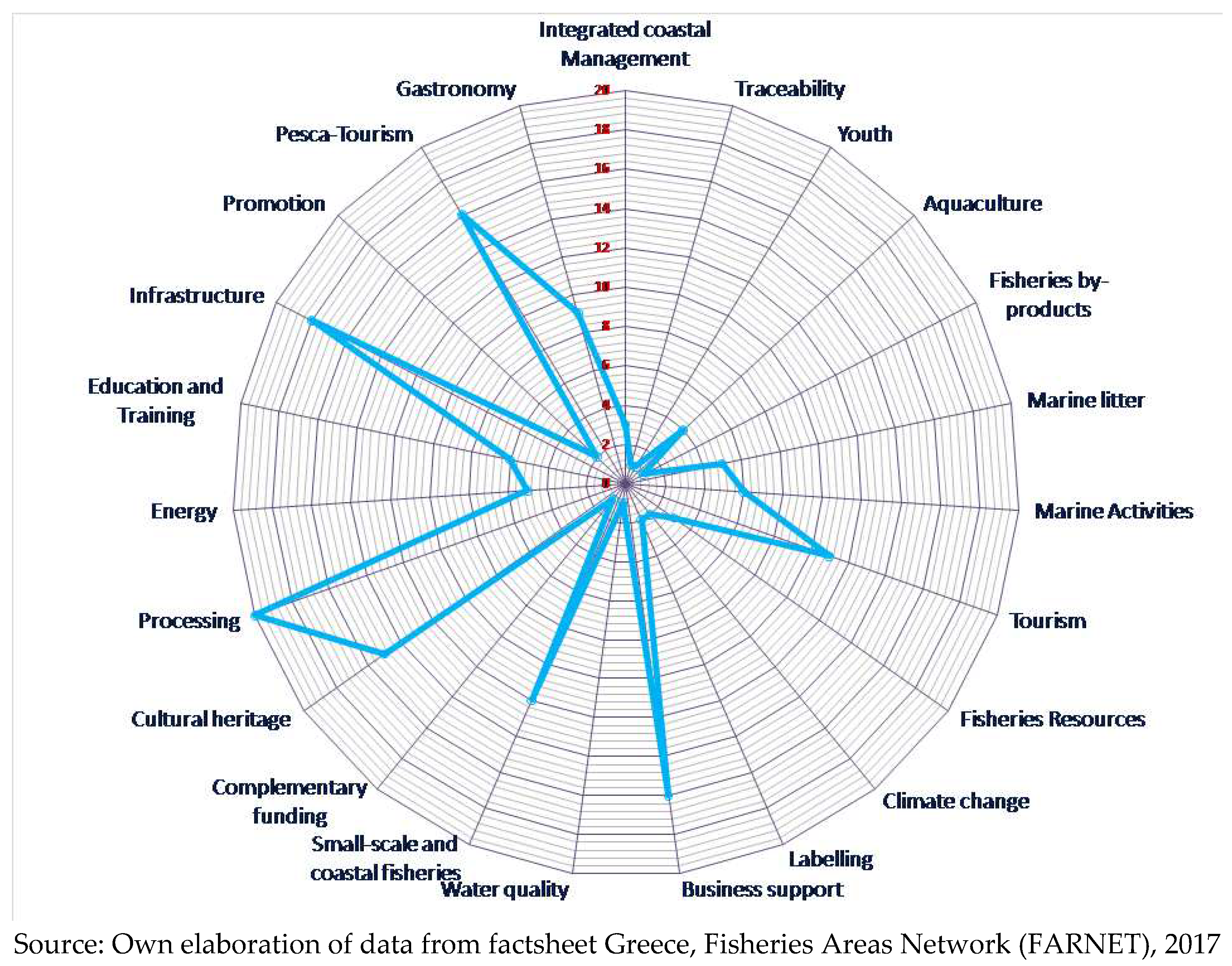

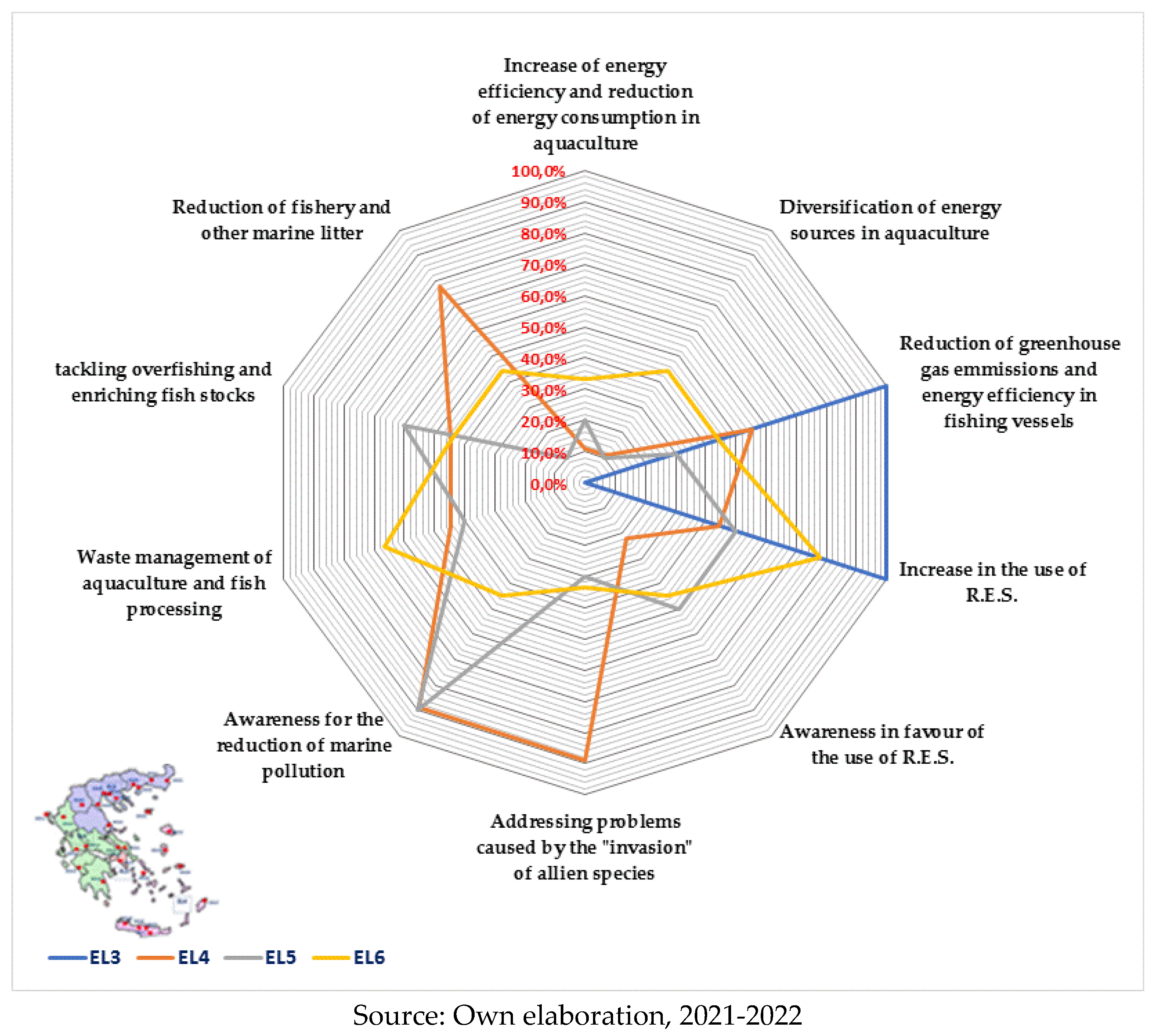
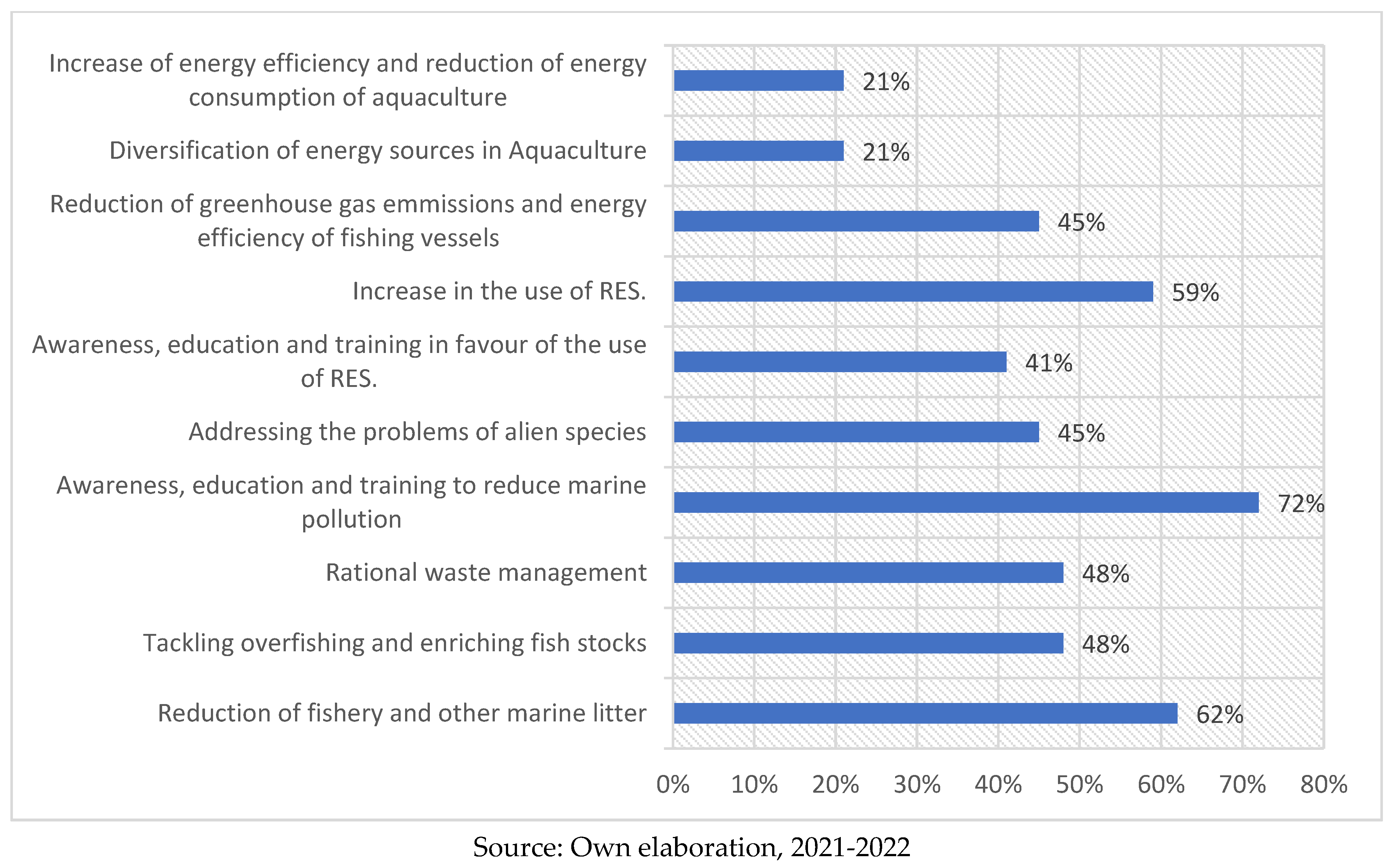
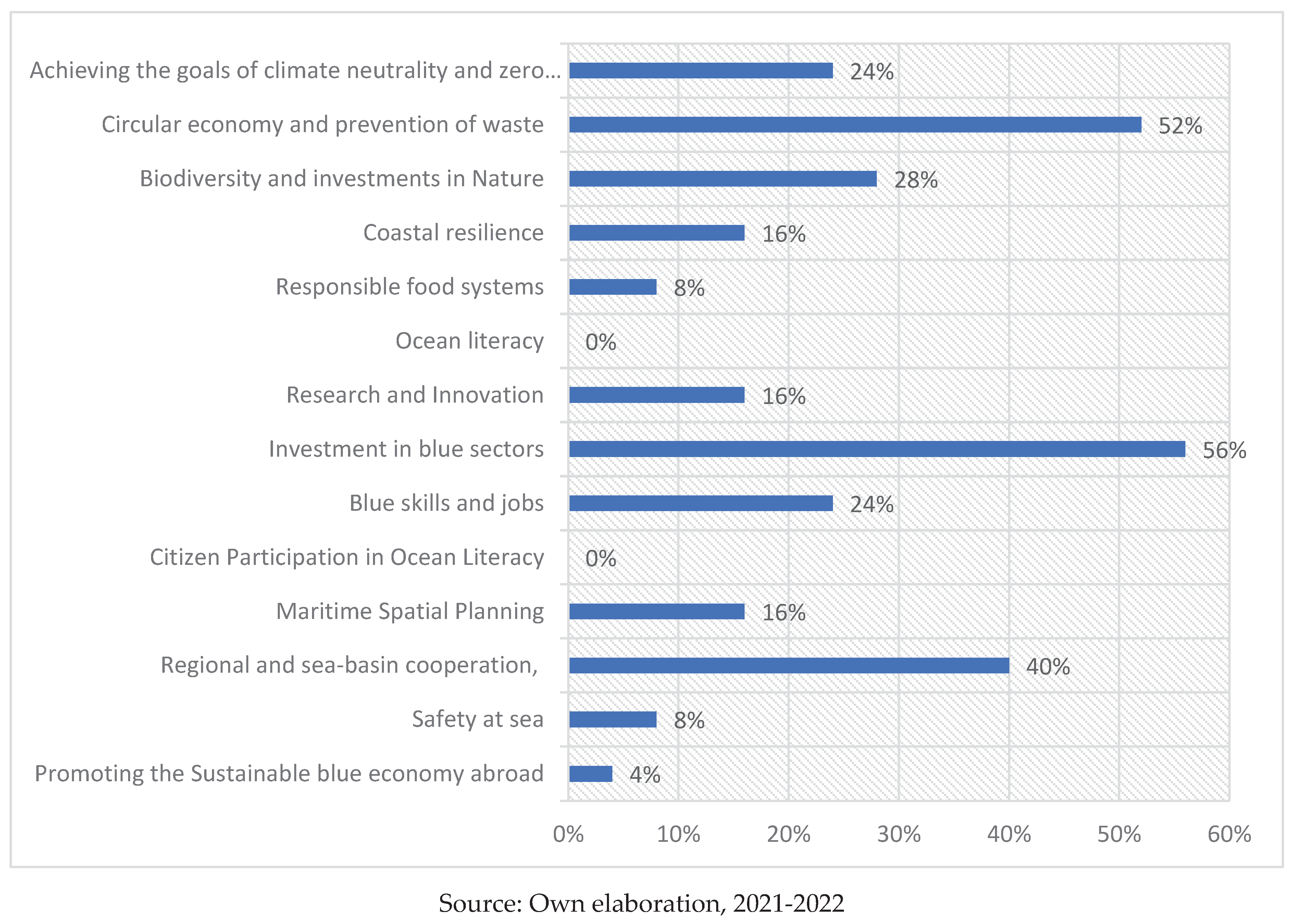
| Objectives of EGD | Agenda for Blue Economy (May 2021) |
|---|---|
| Climate neutrality and zero pollution. | Development of offshore renewable energy, decarbonization of maritime transport and greening ports. |
| Switch to a circular economy and reduction of pollution | Establishment of renewed standards for fishing gear design, ship recycling, decommissioning of offshore platforms, actions to reduce plastics and microplastics pollution. |
| Preservation biodiversity and investment in nature | Protection of the 30% of the EU’s area to reverse biodiversity loss, increase fish stocks, contribute to climate mitigation and resilience, minimize environmental impacts on marine habitats and generate significant financial and social benefits. |
| Support of climate adaptation and coastal resilience | Development of green infrastructure in coastal areas that will protect coastlines from the risk of erosion and flooding, preserve biodiversity and landscapes and benefit tourism and coastal economy. |
| Sustainability of food production | New marketing standards for sea food, use of algae and seagrass, strong fisheries control, R&D in cell-based seafood and sustainable aquaculture. |
| Management improvement of space at sea | Establishment of a Blue Forum for users of the sea coordinating a dialogue between stakeholders and stimulating a cooperative exchange for the sustainable use of marine environment and the implementation of the EU Directive on Maritime Spatial Planning (MSPD). |
| Type of Area | Actions Where Contribution Is Expected | Percentages Appeared in the Survey (Stating That They Agree to Strongly Agree) |
|---|---|---|
Excl. Insular
|
-reduction of gas emissions/ increase of energy efficiency of fishing vessels -reduction of fishery and other marine litter -awareness/education/training of people, local agencies and enterprises to reduce marine litter. -invasion of alien species in the Greek seas -increase of the energy efficiency of the fishing vessels |
54.5% 100.0% 72.7% 72.7% 50.0% |
Excl. Coastal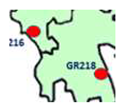
|
-increase in the use of renewable energy sources -reduce fishery and other marine litter -tackle overfishing and increase fish stocks -rational waste management of aquaculture and fish processing plants -awareness/education/training of people, local agencies, and entrepreneurs to reduce marine pollution. |
100.0% 63.6% 63.6% 63.6% 72.7% |
Inland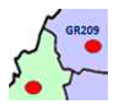
|
-increase the use of RES -tackle overfishing and enrich fish stocks -awareness/education/training in favor of the use of RES -reduce fishery and other marine litter -awareness/education/training of people, local agencies and enterprises to reduce marine pollution |
63.0% 100.0% 100.0% 63.6% 100.0% |
Insular & coastal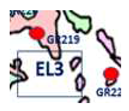
|
-reduce gas emissions/increase energy efficiency of fishing vessels -increase the use of RES -awareness-education-training in favor of the use of RES. -rational waste management of aquaculture and fish processing plants -reduce fishery and other marine litter -awareness/education/training of people, local agencies, and enterprises to reduce marine litter -increase energy efficiency of the fishing vessels |
54.5% 66.0% 66.6% 50.0% 50.0% 66.67% 50.0% |
Disclaimer/Publisher’s Note: The statements, opinions and data contained in all publications are solely those of the individual author(s) and contributor(s) and not of MDPI and/or the editor(s). MDPI and/or the editor(s) disclaim responsibility for any injury to people or property resulting from any ideas, methods, instructions or products referred to in the content. |
© 2023 by the authors. Licensee MDPI, Basel, Switzerland. This article is an open access article distributed under the terms and conditions of the Creative Commons Attribution (CC BY) license (http://creativecommons.org/licenses/by/4.0/).





